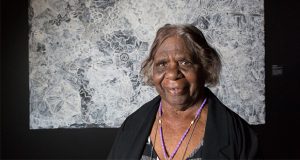Acronyms are handy expressions for those who know what they stand for, and impossible for those who don’t. Exco encountered in a brief news report gives little away. Could it be a shortened form of excon (-vict/-fidence man)? Try making ...
More »Strictly speaking | Hygge
The Danish word hygge, meaning ‘a sense of comfort that engenders contentment’ has had various waves of popularity in the English-speaking world. It was first recorded in the US in the 1960s to describe a general feeling of wellbeing. ‘Mindfulness’ might be a ...
More »Strictly speaking | Get-up
This informal word has multiple senses – not all overlapping – depending on which dictionary you consult. They do agree on get-up being an unusual costume or outfit which draws attention to the wearer. “Get-up nights” are a suburban extravaganza ...
More »Strictly speaking | Furlough
Lexicographers and linguists like to make graphs to show how the usage of words ebbs and flows. It’s a trivial comparison to make, but some of these charts showing recent trends have similarities to the graphics we’ve been seeing of ...
More »Strictly speaking | Frugal(ista)
In its sense of “sparing”, frugal is not a new word, and it often works as a negative when applied to the amount of food on the table, as in a frugal meal. But Samuel Johnson’s C18 observation on the ...
More »Strictly Speaking | Fomite
Covid-19 has spawned a new vocabulary, from lockdown to social distancing to super-spreader, that has quickly become familiar. We’ve also had to learn technical terms like pandemic and coronavirus, and drug names like Hydroxychloroquine and Remdesivir. Another medical word that ...
More »Strictly Speaking | Magpie, hamster, squirrel
In a recent article on words that the COVID-19 crisis is adding to English (and other languages), columnist David Astle mentions magpie as a verb, meaning to swoop on supermarket shelves and clear them (Sydney Morning Herald, 3.4.20). The aggressiveness ...
More »Strictly speaking | Infocalypse
This obscure and tongue-challenging word captures what some regard as the most destructive threat to 21st century society. It’s not COVID-19 but the information apocalypse, with fake news and falsified facts flooding through social media, fostering overcredulity in some people ...
More »Strictly speaking | Ngangkari
A lot of words have come into Australian English from Aboriginal languages. Think of billabong, corroboree, kookaburra, mia-mia, and of course kangaroo – which was famously misinterpreted by Captain Cook and his crew. It’s true of most of these words ...
More »Strictly Speaking | Wussification
Words which can only be defined in negative terms are not the most constructive in our vocabulary. Wuss is one such, usually defined as “a weak or ineffectual person”, i.e. not strong, lacking courage, indecisive, not on top of things, ...
More » Campus Review The latest in higher education news
Campus Review The latest in higher education news









